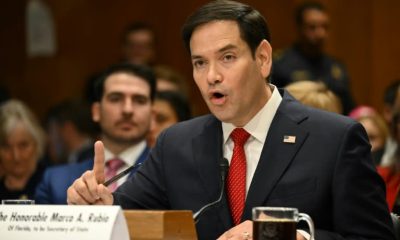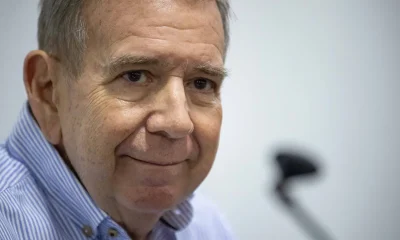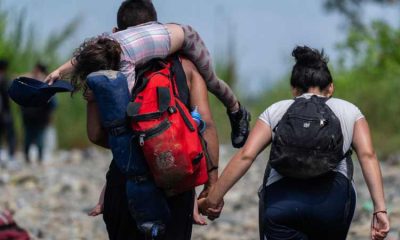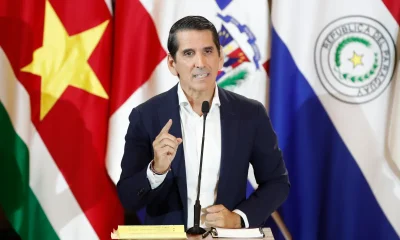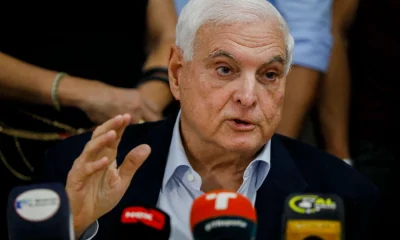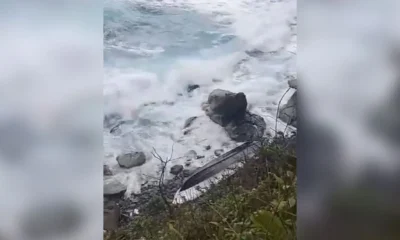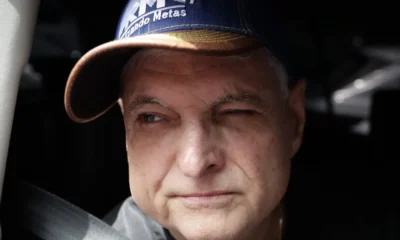Centroamérica
“Corruption was a man, but democratically!” says Rubén Blades after elections in Panama
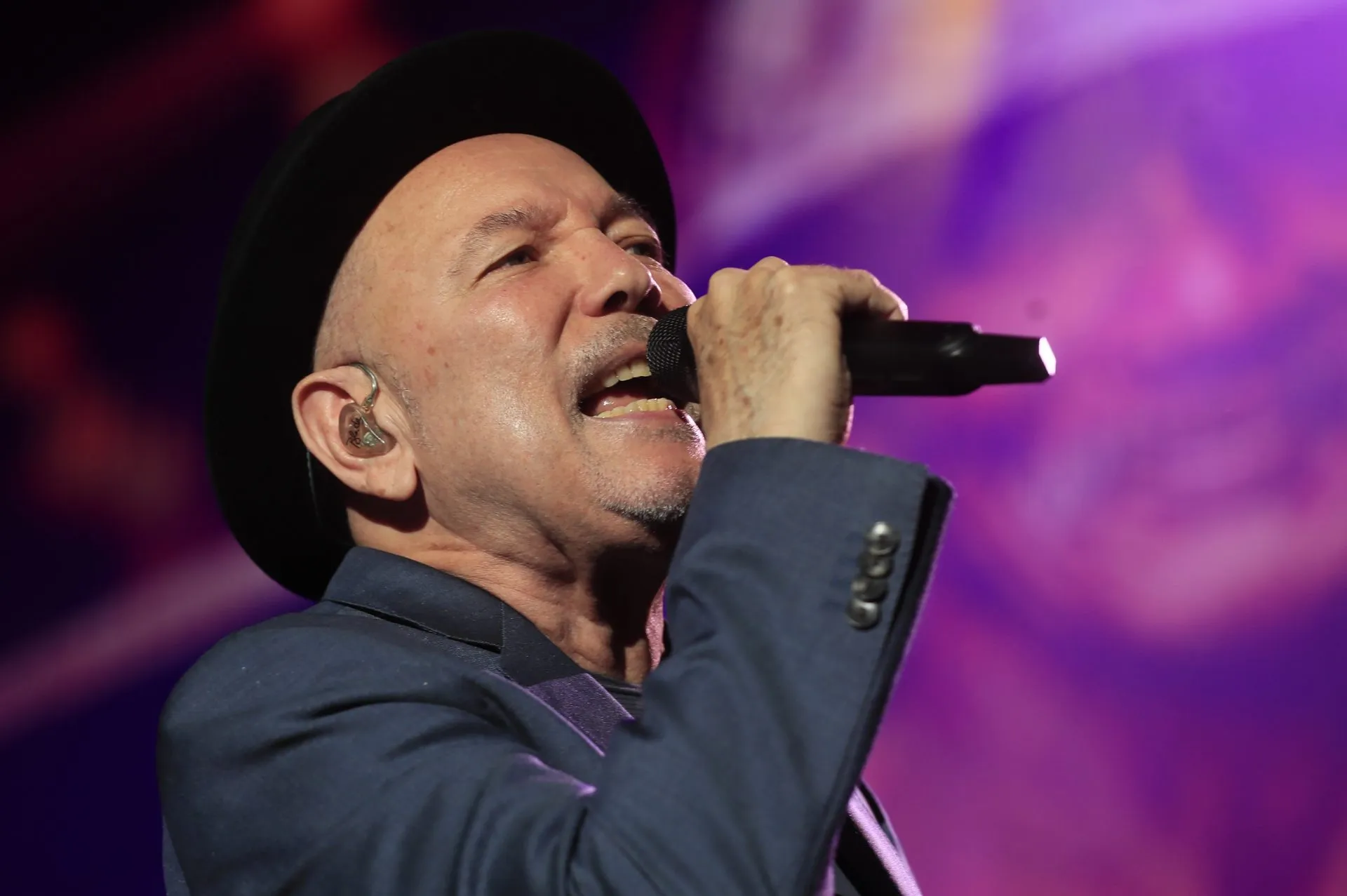
Panamanian singer-songwriter Rubén Blades said on Monday that he “won corruption, but democratically” after the presidential triumph on the eve of José Raúl Mulino, the dolphin of former President Ricardo Martinelli, with 34% in the general elections in Panama.
“I write these lines with great regret. I was categorically mistaken in believing that J. R. (José Raúl) Mulino would not be elected president of Panama,” Blades wrote on his blog ´La Esquina´.
“On the contrary, in a public demonstration of support for corruption, a candidate chosen ‘by finger’ by a convicted and fugitive declared corrupt, with only 33% of the votes in today’s election, May 5, 2024, has become the new president of the Republic of Panama, despite the combined rejection of 67% of the rest of the electorate,” the famous singer added.
Mulino replaced Martinelli as a presidential candidate in these elections after he was disqualified by the sentence of more than 10 years in prison for money laundering, which led him to take asylum at the Nicaraguan embassy in Panama.
Mulino had a controversial in extremis candidacy that up to 48 hours before the elections was pending the Supreme Court of Justice after being sued for her alleged “unconstitutionality” because she was not elected in primaries or having a candidate for vice president, as established by the Magna Carta.
Blades, a critic of former President Martinelli who on other occasions has called him “corrupt,” questioned the “How can we insist on the youth that civic virtue is superior to opportunism, to the trap, to the ´play alive´? Almost 900,000 (nine hundred thousand people) gave their approval to Ricardo Martinelli by voting for his chosen one.”
“That’s the harsh reality,” the winner of multiple Grammy awards and former Panamanian Minister of Tourism categorically added.
He said that “for months” he had the “hope that this result would not occur,” because he knows that the country “has a spirit, a special soul that makes it wonderfully unique.”
“Young people like Juan Diego Vásquez and Gabriel Silva, and those who participated in the ‘Vamos por Panamá’ coalition as candidates, confirm my certainty that Panama can create honest and intelligent responses with which to carve out an honorable and successful destiny, despite the sorrows and disappointments that many of us experience today,” described the singer-songwriter.
Blades refers to the platform ´Vamos´, which he himself supported when he went out to campaign with those young independent deputies who rose in these elections with 19 seats in Parliament.
“So let’s prepare our minds and souls for what is to come. I fear that it will not be what some think will happen, a magical period of prosperity, and unlimited progress for Panama,” said the former minister, since Mulino promised a “pro-private enterprise” government that will resene the Panamanian economy, one of his campaign commitments.
And Blades concluded: “Whatever it is a matter of making up, a convict, corrupt and fugitive from justice has won the presidency of our republic through his anointed front man, with the direct vote of a people self-condemned for their irresponsibility and their refusal to consider the benefit that can result from living and accepting the consequences of civic honesty and the rejection of the poison of clientelism and ‘living play’.”
Centroamérica
White House rejects Maduro letter to Trump as full of lies
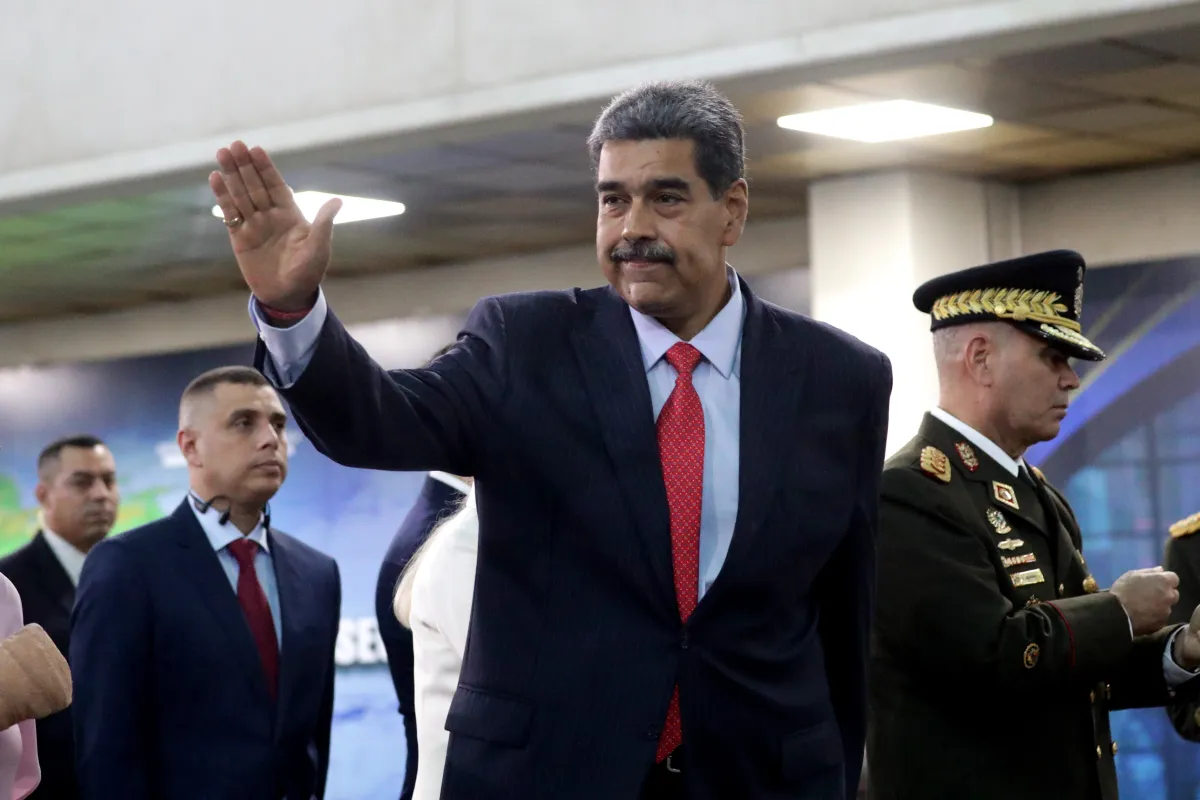
White House spokesperson Karoline Leavitt confirmed Monday that U.S. President Donald Trump received a letter from Venezuelan President Nicolás Maduro, whom she described as “illegitimate.” In the letter, Maduro expressed his willingness to engage in dialogue, but Leavitt warned that the document “contains many lies.”
“We have seen this letter. Frankly, I think Maduro repeated many lies in it, and the Administration’s stance on Venezuela has not changed,” Leavitt said during a press conference at the White House.
The spokesperson emphasized that Washington considers the Chavista regime illegitimate and underscored that “President Trump has clearly demonstrated his willingness to use all necessary means to stop the lethal drug trafficking from the Venezuelan regime to the United States.”
Meanwhile, Venezuelan Executive Vice President Delcy Rodríguez confirmed on Sunday that Maduro sent the letter to Trump and published it on Telegram.
Dated September 6, the letter expresses Maduro’s willingness to negotiate with U.S. special envoy Richard Grenell and denies any links to drug trafficking. “In recent weeks, absolutely false accusations have emerged about connections with mafias and drug trafficking gangs by the legitimate high authorities of Venezuela,” the letter reads.
Central America
UN experts label Nicaragua’s repression as crimes against humanity
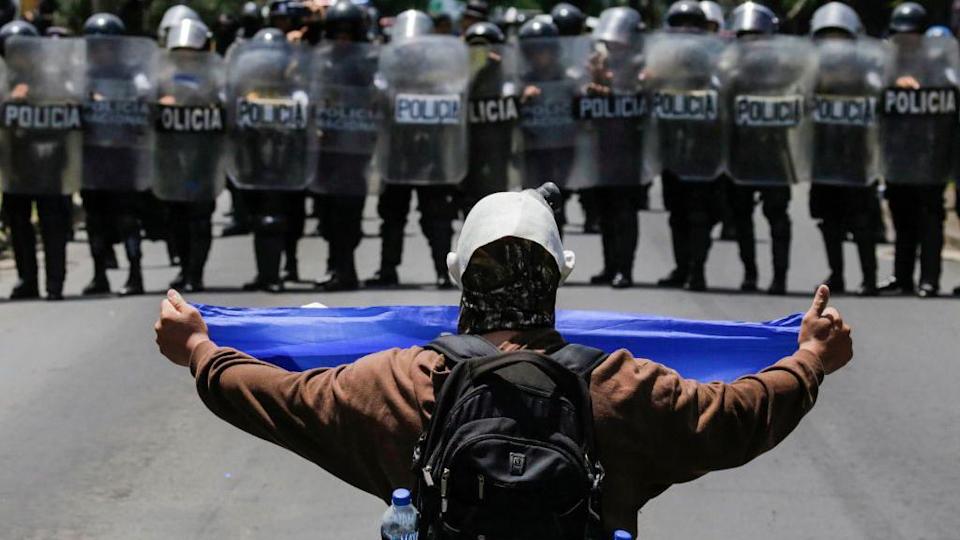
These are just some of the violations of human integrity that the United Nations’ Group of Experts on Human Rights in Nicaragua considers crimes against humanity.
The expert team determined in its latest report, presented on April 3, that the “State is persecuting its own people” with repressive actions that, under international law, would fall into the category of crimes against humanity.
“This report is a wake-up call for the international community about the situation in Nicaragua and its duty to protect its population,” Jan-Michael Simon, a lawyer and president of the group, told BBC Mundo.
The document identifies 54 individuals, including ministers, members of the security forces, and civil society actors, as responsible for the “systematic and widespread repression” carried out by the regime of Daniel Ortega and Rosario Murillo.
Although this is not the first time the technical team created in 2022 has denounced the events that began with the 2018 protests in Nicaragua, the report now names the alleged perpetrators, whose guilt will have to be determined by international justice bodies such as the International Court of Justice in The Hague.
As a result of the report, the “co-presidents” Daniel Ortega and Rosario Murillo decided to withdraw their country from the United Nations Human Rights Council.
“Nicaragua conveys its sovereign and irrevocable decision to withdraw from the Human Rights Council and from all activities related to this council and all its satellite mechanisms,” Murillo announced.
Centroamérica
Guatemalan journalist José Rubén Zamora returns to prison after court revokes release
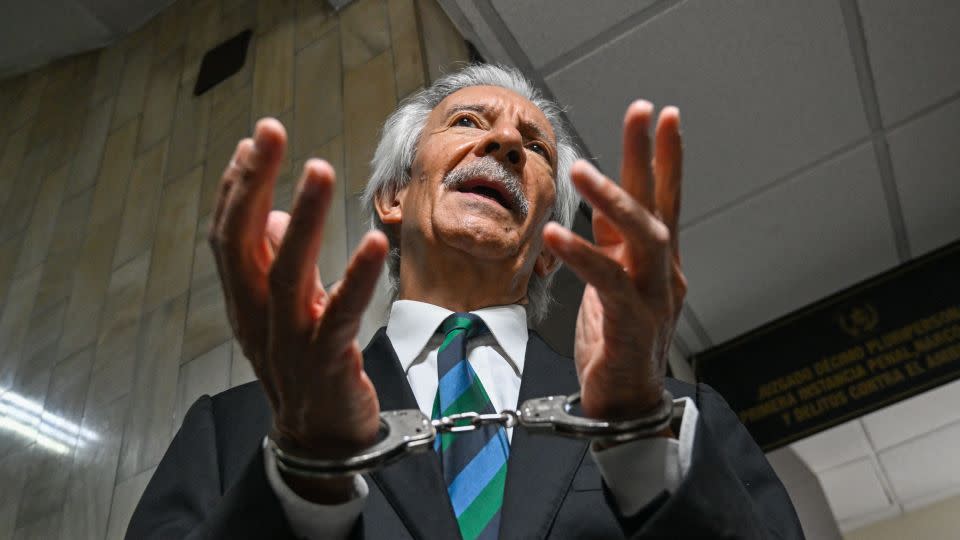
Businessman and journalist José Rubén Zamora was sent back to prison on Monday after the Second Multipersonal Criminal Court complied with an order from the Third Court of Appeals, which suspended his conditional release. The ruling followed a motion filed by the Public Ministry, arguing that Zamora posed a flight risk.
“I must comply with and enforce the order,” Judge Erick García stated during the hearing that revoked Zamora’s substitute measures, which had been in place since October last year.
Following the court’s decision, the founder of El Periódico was transferred back to prison, where he had already been incarcerated from July 2022 to October 2024.
Zamora’s defense team unsuccessfully requested the suspension of the hearing, citing two pending appeals aimed at overturning the Court of Appeals’ decision.
-

 Central America5 days ago
Central America5 days agoGuatemala seizes over a ton of cocaine hidden in flour at Pacific port
-

 Central America4 days ago
Central America4 days agoGuatemala Police Arrest Prison Guard Caught in the Act of Extortion
-

 Central America4 days ago
Central America4 days agoHonduras swears in conservative president Asfura after disputed election
-

 International5 days ago
International5 days agoHistoric snowstorm paralyzes Toronto after 60 centimeters of snow
-

 Central America4 days ago
Central America4 days agoBukele leads public trust rankings as UCA survey highlights gains in security
-

 International2 days ago
International2 days agoFootball Fan Killed in Clashes After Colombian League Match
-

 International5 days ago
International5 days agoSpain’s irregular migrant population rises to 840,000, study finds
-

 Central America2 days ago
Central America2 days agoGuatemala President Says Starlink Terminal Found Inside Prison
-

 International4 days ago
International4 days agoDoomsday clock moves to 85 seconds before midnight amid rising global risks
-

 International4 days ago
International4 days agoWinter Storm Fern Leaves 30 Dead and Over One Million Without Power Across the U.S.
-

 International1 day ago
International1 day agoU.S. Senate Rejects Budget, Bringing Government Closer to Shutdown Amid DHS Dispute
-

 Sin categoría4 days ago
Sin categoría4 days agoEight Killed in Series of Armed Attacks in Ecuador’s Manabí Province
-

 International4 days ago
International4 days agoSpain approves plan to regularize up to 500,000 migrants in Historic Shift
-

 International5 days ago
International5 days agoRights group says nearly 6,000 killed in Iran protest crackdown
-

 International2 days ago
International2 days agoRubio Says U.S. Could Participate in Follow-Up Russia-Ukraine Talks
-

 International2 days ago
International2 days agoMissing Spanish Sailor Rescued After 11 Days Adrift in Mediterranean
-

 Sin categoría4 days ago
Sin categoría4 days agoEl Salvador Launches Fourth Year of Ocean Mission to Protect Marine Ecosystems
-

 Central America9 hours ago
Central America9 hours agoPanama Supreme Court Strikes Down Panama Ports Concession as Unconstitutional
-

 International5 days ago
International5 days agoVenezuela frees at least 80 political prisoners, NGO says
-

 International5 days ago
International5 days agoEU launches new probe into X over AI-generated fake nude images
-

 International1 day ago
International1 day agoStorm Kristin Kills Five in Portugal, Leaves Nearly 500,000 Without Power
-

 Central America9 hours ago
Central America9 hours agoU.S. and Guatemala Sign Trade Deal Granting Zero Tariffs to Most Exports
-

 International1 day ago
International1 day agoTrump Says Putin Agreed to One-Week Halt in Attacks on Ukraine Amid Extreme Cold
-

 International1 day ago
International1 day agoMan Arrested After Vehicle Crashes Into Jewish Institution in Brooklyn
-

 International5 days ago
International5 days agoSevere winter storm grips U.S., leaves multiple dead as extreme cold persists
-

 International5 days ago
International5 days agoFrance debates ban on social media for children under 15



























